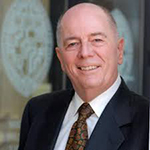
Winston Tabb is Sheridan Dean of University Libraries and Museums at the Johns Hopkins University in Baltimore, Maryland. He also serves on CLIR’s Board of Directors.
What must change in our field?
Costly, unproductive competition! Our great research libraries—really all libraries—have so much to do, so many opportunities now, and so many good things we can do that it drives me crazy when people focus more on competing than collaborating. This is why I am so energized by the dramatically ramped-up collaborations we have going now in our 13-member Ivy Plus Libraries group. And, honestly, the announcement a couple of weeks ago about the new collaboration between the Digital Public Library of America and Library of Congress gave me goosebumps because it is so right and so overdue. And don’t even get me started about colleagues who let the perfect be the enemy of the good…
What should endure?
Our focus on users—that’s what must endure. The librarians I admire most are those who anticipate needs—librarians who saw, for example, that helping researchers preserve their research data and make it accessible was going to be a logical extension in the digital era of our traditional role in preserving print collections, and pioneered ways to meet that need. This user focus requires foresight and courage; we can’t just be reactive. And, not incidentally, if we are serious about this proactive service focus we have to be much more open to what it means to be a “librarian.”
What are you or your colleagues geeking out on lately?
Our resident geeks are now engaged in a great collaboration with partners at Princeton and University College London in a fascinating effort to develop a set of protocols, APIs, and shared technologies for the presentation of digital surrogates of rare books containing manuscript annotations by multiple readers, opening up whole new areas of research in the history of reading. I don’t know that it falls in the category of “geeking out,” but I’m personally focused in my work at the international level in advocating for national and cross-border laws that permit new forms of research, such as text and data mining.
